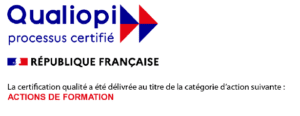
Day 1 – Morning
Day 1 – Afternoon
Day 2 – Morning
Day 2 – Afternoon
Throughout the training, participants engage in interactive workshops and group discussions, ensuring a hands-on learning experience tailored to real-world applications.
No experience in computer security is required. Basic understanding of information security concepts would be beneficial.
The following elements will be provied:
This training targets any professional interested in understanding ISO/IEC 27001 certification and security governance. In particular auditors and consultants involved in security management systems, compliance officers, risk or IT managers.
Assessments at the beginning and end of the course, quizzes …
5 working days before the course start date (if financed by OPCO).
A training certificate complying with the provisions of Article L. 6353-1 paragraph 2 is issued to the trainee.

I subscribe to the training newsletter
Sign up for
our newsletter
© 2024 SERMA GROUP – Terms and Conditions – Data protection policy
Télécharger le catalogue de formation SERMA
Download the SERMA training catalog